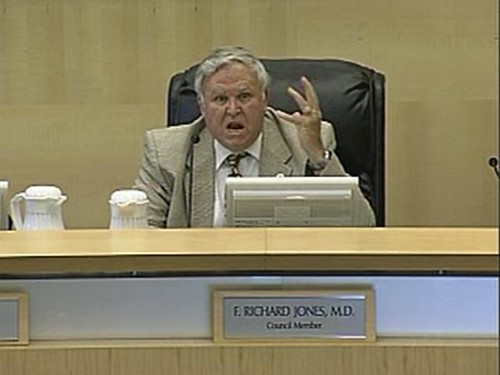
On January 6th, a 4-1 majority of the Fullerton City Council perpetrated a strange act of self-mutilation, with Shawn Nelson dissenting. It decided to revoke its policy of selecting people to serve on commissions and committees. Instead of individual councilpersons being able to choose direct appointments, they returned to the old system whereby a couple of councilpersons and a commission member conduct interviews and make recommendations for approval by the entire City Council.
So effectively a majority of the City Council chose to disempower itself by abdicating the ability to choose their own direct representatives on commissions.
Now why would politicians give up direct appointment for the diluted old groupthink process? A good question, and one only partially explained by the typical Fullerton city councilperson’s fear of actually exercising the power the electorate has bestowed upon them.
Historically, the old system of interviews meant that certain candidates could be effectively weeded out or ignored altogether. And what was the profile of these undesirables? Independence and a willingness to question the bureaucrats in City Hall were likely character traits; or, to put it another way, the process effectively ensured the type of person who was selected. The latter was inevitably chosen for his or her willingness to be a team player, to go along with the recommendations of “staff” and who could be counted on not to ask embarrassing questions and expect coherent answers.
Furthermore, since the commissioners were not directly accountable to anyone they were even more likely to identify with the staff department that oversees its respective commission, than with any elected official’s policy. This fact may comfort those who find politics distasteful, but it results in a diffusion of authority – a vacuum into which bureaucratic inertia will inevitably insinuate itself.
Appointing people who are safe who through personality type, or can be relied upon to run with the herd in order to protect their business interests would certainly appeal to Dick Jones and Don Bankhead – retired Air Force doc and cop, respectively. It was the retired bureaucrats themselves who always had a disproportionate influence in this system since they had ample time to the interviewing.
We associate this sort of corporate thinking from men once in uniform. But what of the two avowed liberal members of the Council, Sharon Quirk and Pam Keller? Liberal women might not be expected to adhere to the lockstep logic of military teamwork. To them we may attribute a liberal, process-oriented view of things in which the more convoluted an operation is in masticating its material, the more digestible the product must be.
And finally, we must note that the practical consequence of this council’s castration will be to deprive current Council pariah Shawn Nelson with the opportunity to make his own direct appointments to commissions; and since he might actually appoint people likely be independent-minded and represent the taxpayers instead of the bureaucracy his colleagues will certainly be gratified by denying Nelson this prerogative – even if it means depriving themselves of the same privilege.













